|
"Command the Israelites to bring you clear oil of pressed olives for the light so that the lamps may be kept burning...Aaron and his sons are to keep the lamps burning before the Lord from evening till morning. This is to be a lasting ordinance among the Israelites for the generations to come." (Exodus 27:20,21) This command from the Lord is repeated in Leviticus 24:2-4. "Command the Israelites to bring you the clear oil of pressed olives for the light so that the lamps may be kept burning continually...Aaron is to tend the lamps before the Lord from evening till morning, continually. This is to be a lasting ordinance for the generations to come. The lamp on the pure gold lampstand before the Lord must be tended continually."
Keeping the light burning was the main responsibility of the priests in the Levitical tribe. We can well imagine the horror of the Jews when their Temple in Jerusalem was taken over by Antiochus Epiphanes and desecrated. Antiochus demanded loyalty to the Greek culture from the Jewish people. He went as far as to erect a statute of himself in each town in Israel and demanded the Jews to bow down and worship it. A family of Levitical priests called the Maccabees, led by Mattathias, refused to comply, and began a revolt. Guerrilla warfare was waged for several years beginning in 167 BC. Through their hard-fought battle, the Maccabees defeated the Syrian Greeks and retook Jerusalem and the Temple. Since the altar had been defiled by the sacrifice of a pig, they removed all of its stones and built a new one. Then, they set about to relight the seven-branched menorah with only one day of oil remaining. To their delight, it burnt for eight days, the length of time needed to cure a fresh batch of olive oil. This victory has been celebrated ever since at The Festival of Hanukkah, which is also called The Festival of Lights. Actually, Hanukkah means Dedication, as the Jews rededicated the Temple and its service to God. Since the lampstand remained lit for eight days, Jewish families light their miniature menorahs that now have eight branches plus one additional elevated branch in the center. The center candle, called The Shamash or Servant, is used each night to light the other candles. This tradition has significance for those who are Christians. There is symbolism in this ceremony that may be missed by those who do not know Messiah, Yeshua. The center candle represents Him. Is it not fitting that the Shamash lights all the other candles? Let us also remember that the number eight stands for new beginnings and sanctification. As the Servant of the Lord, Jesus is the Light of the World. He is the one who illuminates everyone. As the eternal flame that does not go out, He continues to light one candle at a time until all of us are lit. Jesus celebrated Hanukkah as it tells us in John 10:22. It was during this festival that he declared His divine identification. Since the physical Temple no longer exists, Believers in Jesus have become the Temple of God (1 Corinthians 6:19), each illuminated by the Shamash. During this season of Hanukkah, we must rededicate our temples through the burning of our oil and the shining of our lights. It is the oil of the Holy Spirit that ignites our lights. "...Let your light shine before others that they may see your good deeds and glorify your Father in heaven." (Matthew 5:16) Our oil supply is unlimited and will keep our flames burning brightly in our hearts endlessly. “Tis the Season" is a phrase frequently heard in our society during the weeks before Christmas. The singing of "Deck the Halls" is an annual tradition when we are reminded, "Tis the season to be jolly!" Indeed, it refers to the festivities of the holiday season. However, it was originally used in connection with warm weather and the celebration of springtime. I would like to put a new spin on this phrase by connecting it to the celebration of Advent. This word is from the Latin "adventus," meaning "coming" or "arrival." The four weeks before Christmas are meant for us to prepare for the birth of Christ. It is a season for waiting, reflection, and expectation.
The origins of Advent are difficult to trace. Some say it began in the fourth and fifth centuries in Spain and Gaul as a season of preparation for baptism of new Christians during Epiphany, when the Magi visit Jesus. Others say it started in 380 AD during the Council of Saragossa--a series of bishops meetings in Spain to adopt eight canons of their faith. Still others say it had its origins in 480 AD when monks fasted every day of the Advent season. Most would agree that it was not until the Middle Ages that Advent was linked to Christmas. The Roman Catholics not only tied the birth of Christ to Advent, but also the second coming of Christ in the clouds after He judges the world. Churches who use an ecclesiastical calendar celebrate Advent. They include Roman Catholics, Anglicans, Lutherans, Episcopalians, Presbyterians, and some Methodists. The Advent wreath, evergreens twisted into a circle with four or five candles, are used in many of these churches. Each candle is used to count off the weeks before Christmas. The wreath is meant to demonstrate that there is no beginning or end to God's love for the world. I read in Christianity.com that the wreath was created in 1839 by Johann Wichern, a German man who founded a children's home. He needed a way to help the children keep track of the time when Christmas would arrive. Advent begins on the Sunday closest to November 30. The first candle lit on the wreath is called the Prophecy candle and stands for hope. The second one is the Bethlehem candle that calls for peace. The third candle is the Shepherd candle that represents joy. And the fourth candle is called the Angel candle which stands for love. If a fifth candle is included in the center, it is called the Christ candle that represents purity, light, holiness, and victory. It is lit on Christmas eve. There are Scriptures typically read during the Advent season. These include Isaiah 7:14 and 9:6-7, Micah 5:2, Zechariah 9:9 and 12:10, and Malachi 3:1 All of these point to the awaited Messiah. Another verse that is read comes from Isaiah 40:31. "But those who hope in (wait upon) the Lord will renew their strength. They will soar on wings like eagles; they will run and not grow weary. They will walk and not be faint." It is important that we do this waiting and hoping with expectation and that we reflect on the gift that God has given us. We should be reminded of God's great love for us in that the Son of God is Immanuel (God with us), and that the baby Jesus would grow up to become the sacrifice for the sins of all humanity. He did this so that we could spend eternity with Him in heaven. "He humbled Himself by becoming obedient to death--even death on a cross! Therefore, God exalted Him to the highest place and gave Him the name that is above every name, that at the name of Jesus every knee should bow, in heaven and on earth and under the earth, and every tongue acknowledge that Jesus Christ is Lord to the glory of God the Father." (Philippians 2:8-11) Hallelujah! A recent letter from Mitch Glaser, President of Chosen People Ministries, touched my heart. Referring to the brutal attack on the Jews in Israel by Hamas, he expressed his desire to be thankful to God even though he is grieving deeply. I quote Mitch: "It is hard to believe we are entering the season of Thanksgiving. It seems so inappropriate to be thankful at this moment in time. I will admit I am having trouble thanking God in light of these last several weeks. I know the apostle Paul wrote, 'In everything give thanks; for this is God's will for you in Christ Jesus.'" (1 Thessalonians 5:18 - NKJ)
"These are my people," Mitch continues, "a nation called by the Sovereign and all-powerful God for His holy purposes." He asks some challenging questions: "How can we come to grips with what happened and be thankful? How can we keep ourselves from being consumed by hatred and a desire for vengeance? How can we be grateful during this season of Thanksgiving in light of these tragic events? The answers are all the more elusive because of the graphic nature of the crimes appearing so often on social media, the news, and websites replaying the horrors, not letting us forget...Yet, I know God wants me to be grateful—not for what happened, of course—but for His grace and mercy we find on the path of suffering." As I reflect on the raw truths shared by Mitch, I recall the wisdom that is shared by Elisabeth Elliot in her book, A Path Through Suffering. She explains that the meaning of suffering can only be understood in the context of The Cross. We must pick up our crosses and follow Jesus. (Luke 14:27) We must look to Him for the next grace that we need in life. We can stand on the promises of God. Elisabeth encourages us: "We have our Father's promise, linking the pain to an unimaginable glory: 'If we suffer, we shall also reign with Him.'" (2 Timothy 2:12) God desires for us to become more Christlike. Suffering was a landmark of Christ's life. The Psalmist writes, "Show me Your ways, Lord. Teach me your paths." (Psalm 25:4) Our time on earth is designed to help us know Christ more so that we grow up like Him. When we share in His sufferings, we increase in our understanding of Him and our intimacy with Him. Willingness to praise the Lord in our sufferings makes us Kingdom partners with Him so that we demonstrate His life and love to those around us. When we go back to Mitch's original questions about giving thanks while we suffer, we must look at our situations from both an earthly and heavenly perspective. Is it possible for us to look at suffering as a divine opportunity? Let us visit the foot of the Cross and remember the suffering of Jesus on our behalf. Here is the opening to thanksgiving. Thanksgiving and praise lead to worship. And, when worship is offered in our pain and suffering, it rises to the throne of God in heaven as sweet incense. Because it is offered sacrificially, this form of worship draws the Lord near to us. The intimacy we then have with Him is without comparison. Heaven is a place of peace and joy, so sacrificial worship can only take place on earth. Thus comes our opportunity! God understands our suffering. He sent His Son as a Redeemer. Somehow the Lord will redeem our trials and afflictions so that His glory falls. Like Mitch, I am grieved and overwhelmed with sorrow for the agony of the Jews in this hour. However, God has not left us without a remedy. We have the gift of prayer so that we can lay our burdens at His feet. He is the one from whom we draw breath. As our Shepherd, He restores our souls and leads us on paths of righteousness for His name sake...He is with us. His rod and staff comfort us. He prepares a table before us in the presence of our enemies...Surely goodness and love will follow us all the days of our lives, and we will dwell in the house of the Lord forever. (Psalm 23 – NIV) The last of the fall feasts, The Feast of Tabernacles, is the culmination of all of the biblical holy days. It is also called "The Feast of Ingathering" because it is a time of harvest. This feast is a picture of the Kingdom of God to come. But before this joyous time of celebration there is the repentance of Yom Kippur. Repentance is what leads us to joy and peace. Messiah Yeshua experienced the Cross before the resurrection. He took up this Cross for us so that we could live in His glory.
In remembering God's faithfulness to them in the wilderness, the children of Israel built temporary shelters called Sukkahs. Seven days they dwelt in their shelters to remind them that God wants us to dwell under the tabernacle of HIs peace. Though the sukkah represents the wilderness season, the branches of fruit placed on it represent the bounty of the Promised Land. This is a season of joining together heaven and earth. The wilderness is our life on earth and our journey to the Promised Land, while the Promised Land itself is the Kingdom of Heaven. The Sukkah also represents a place to tabernacle with God. Here is an interesting fact to consider: The Sukkah, or temporary dwelling, was originally made from broken branches. The Apostle Paul writes about the Jewish people being broken branches from the Olive tree. These "branches" were broken off of the Olive tree (a symbol for the Jews) because of their unbelief. And here is the benefit to the rest of world: "Because of their transgression, salvation has come to the Gentiles to make Israel envious.” (Romans 11:11) It is God's desire that all nations come to Him. Isn't it interesting that the "broken branches" are integral in the salvation of the nations? They make room for all nations to come to the Lord and then those nations draw the "broken branches" back to Him. The prophet Zechariah gives us a glimpse of the future when the Lord will gather all the nations in Jerusalem. "On that day living water will flow out from Jerusalem...The Lord will be king of the whole earth. On that day there will be one Lord, and His name the only name...Then the survivors from all nations that have attacked Jerusalem will go up year after year to worship the King, the Lord Almighty, and to celebrate the Festival of Tabernacles." (Zechariah 14:8, 9,16) God desires to tabernacle with everyone from every tribe, and tongue, and nation. Through the disciple John He paints a beautiful picture of life in the New Jerusalem that is so connected to the Feast of Tabernacles. "Look, God's tabernacle is with human beings. And from now on He will tabernacle with them as their God. Now God Himself will have His home with them--'God-with-them' will be their God. He will wipe away every tear from their eyes and eliminate death entirely. No one will mourn or weep any longer. The pain of wounds will no longer exist, for the old order has ceased." (Revelation 21:3, 4 - TPT) Friday at sunset began the celebration of the Feast of Tabernacles. It will be celebrated for seven days. Should we not join in this celebration of joy and peace in remembering that Jesus/Yeshua will reign with us for eternity and that the earth will become the tabernacle of God? On the Jewish calendar, the first month of the civil year and the seventh month of the religious year coincide. The seventh month is called Tishrei, meaning beginning. Seven is the number of completion or perfection, so it is significant that the three fall feasts occur in this month. The New Year occurs on the first day of this month. The celebration, also known as Rosh Hashanah or The Feast of Trumpets, occurs at sundown on September 15 on our calendars. The shofar, an instrument made of a ram's horn, will be blown to call the Jews together so they can consider the past year and look at the year ahead. The sound is meant to awaken the souls of those who hear it so that they are prompted to return to God. The horn brings to remembrance the ram that Abraham offered to God as a sacrifice in place of his son, Isaac. It is also a reminder for God's people to remain humble in the face of a holy God.
Another name for the Jewish New Year is "The Day of Judgment." It begins the fall feasts. These feasts are meant to lead those celebrating into right standing with God. Joel 2:1 commands, "Blow the trumpet in Zion; sound the alarm on my holy hill." The shofar is sounded 100 times at Rosh Hashanah. Not only does it call for a gathering of God's people, but it also reminds them to go to war against anything that is contrary to God's truth. We should be encouraged by the words of Joel 2:12-15. "'Even now,' declares the Lord, 'return to me with all your heart, with fasting and weeping and mourning.' Rend your heart and not your garments, return to the Lord your God, for He is gracious and compassionate, slow to anger and abounding in love and He relents from sending calamity. Who knows? He may turn and relent and leave behind a blessing...Blow the trumpet in Zion, declare a holy fast, and call a sacred assembly." God is focused on our redemption. The New Year is to be a time for a reset for all of humanity after a time of self-reflection and repentance. The number of the year is one that speaks to us about the Lord's intentions. In order to follow what many of the prophets are saying about the year to come, we must understand that every letter in the Hebrew alphabet is a picture that conveys a message and has a numerical value. 5784 is the number of the New Year. The fourth Hebrew letter is "Dalet" and has a pictographic meaning of a door or portal. God created the sun, moon, and stars on the fourth day, and their light separates us from darkness. These celestial bodies indicate our times on the calendar. Thus, our Creator regulates our times and seasons, and Tishrei is meant to demonstrate the linking of time and authority. Let us look at all the numbers of this year: Five is the number of grace. Seven is the number of perfection. Eight is the number of new beginnings. And four is the number of a door. We are four years into the decade of the 80s. This number 80 is the seventeenth letter of the Hebrew alphabet and is the picture of a mouth. It is called "Pey" and is associated with speech and other functions of the mouth like blowing. What does this say to us as we consider the year 5784? Remember that God created the world with His spoken word. Since we are made in His image, our sounds have power as did His. We have been given the power to bless or curse. Proverbs 18:21 tells us, "The tongue has the power of life and death..." Then we have Psalm 81:10 that promises, "...Open wide your mouth and I will fill it." God is the one who fills us with good things! The ten days between Rosh Hashanah (The New Year) and Yom Kippur (The Day of Atonement) are called The Days of Awe because the Jews believe their actions during these ten days can alter the decree God writes about them in His heavenly book. I believe we have a great opportunity to walk through new doors in the year to come. Perhaps this is time for us to experience growth in a new dimension—the fourth or spiritual dimension. Believers have legal access to the spirit realm. Ephesians 2:6 confirms this: "God raised us up with Christ and seated us with Him in heavenly realms in Christ Jesus." Could the declaration of our faith move us into a season of creation that we have not seen before? We must embrace the promises of God by declaring them so that the door of blessing and opportunity is open for us. Let it be! July 4, 1776, 247 years ago, our founding fathers signed the Declaration of Independence with two main objectives: (1) A declaration of independence from Great Britain, and (2) a declaration of dependence upon Almighty God. Its writers used the Bible as their example. I wonder how they would feel about the chaos that has ensued in our country. It seems we have endless battles between Christians and non-Christians whose opinions are opposite when it comes to the evidence of a Creator and creation. Moral absolutes are being challenged by those who say there is no such thing. Yet, on the day of America's birth a bell was rung that had a Scripture inscribed on it from Leviticus 25:10. "Proclaim liberty throughout the land to all the inhabitants thereof." That bell remains as a testimony to the foundation from which our nation was established--The Bible.
Our 30th president, Calvin Coolidge (who was born on July 4, 1872), said it well when he looked into the future of our nation. "The foundation of our society and our government rest so much on the teachings of the Bible that it would be difficult to support them if faith in these teachings would cease to be practically universal in our country." Sadly, I see these words beginning to bear fruit. Let us not forget that the Bible was the foundational book used in our schools at the dawning of America. Those of us who hold to the truths upon which our country was established must come into agreement with our forefathers. Dutch Sheets, in a post written on June 22 entitled "God Needs Our Agreement," confirms this. He reminded us of the importance of agreeing with previous generations. Dutch shared interesting information about the foundations of our schools. He wrote, "One hundred six of America's first one hundred eight colleges and Universities were founded on the Christian faith. Students at Harvard and Yale were required to read Scriptures twice daily. Harvard's founders stated: 'All knowledge without Christ is vain.' Its motto was 'For Christ and The Church.' Yale's founders stated that 'Every student shall consider the main end of his study is to know God in Jesus Christ...' Princeton's motto was 'Under God's Power She Flourishes.'...Noah Webster, who published the first American Dictionary of the English language in 1828 said, 'Education is useless without the Bible.'...Webster also said, 'The principles of genuine liberty, and of wise laws and administrations, are to be drawn from the Bible and sustained by its authority. The man, therefore, who weakens or destroys the divine authority of that book may be accessory to all the public disorders which society is doomed to suffer.'" There is a remnant of people in the United State who understands and believes in the foundational truths upon which our nation was established and on the precepts and commandments that are the underpinning of our Constitution. We must declare these truths in agreement with the generations that came before us. We cannot allow the loud voices of descension to override truth. The future of our nation depends upon us. In a post from June 21, Dutch Sheets reminded us of the powerful hymn written by Martin Luther titled, "A Mighty Fortress is our God." I would like to highlight a line from the third verse. "And though this world, with devils filled, should threaten to undo us, we will not fear, for God has willed HIs truth to triumph through us..." Triumph occurs through our declaration of truth. We must take every opportunity God gives us to make truth known. We can take heart from the words of Scripture: "Every word of God is flawless; He is a shield to those who take refuge in Him." (Proverbs 30:5) Can we agree that God used King David to inspire several generations? He continues to touch generations through the Psalms that he has written. I wonder, however, if he had in mind saving the Psalms as an encouragement for his children and a legacy for generations to come. Although most of them demonstrate praise and worship, there are also those that talk about pilgrimage, petitioning God, or confessing a lament. They are a picture of David's relationship with God that shows us transparency and honesty. Psalm 139, for example, was written when David was contemplating God's love for him in the way he was made. He expressed contempt for God's enemies, and yet realized that he could have had sin in his own life. So, he invited God to search and know his heart. "...Test me and know my anxious thoughts. See if there is any offensive way in me and lead me in the way of everlasting." (Verses 23-24)
When David was coming to the end of his life he appointed his son, Solomon, to be king over Israel and to oversee the building of a temple for the Lord. He gave a charge to Solomon: "...Be strong, act like a man, and observe what the Lord your God requires: Walk in obedience to Him, and keep His decrees and commands, His laws and regulations, as written in the Law of Moses. Do this so that you may prosper in all you do and wherever you go and that the Lord may keep His promises to me: 'If your descendants watch how they live, and if they walk faithfully before me with all their hearts and souls, you will never fail to have a successor on the throne of Israel.'" (1 King 2:2-4) In David's desire for his son to succeed, he spoke words of advice directly to Solomon and left the Psalms for him to read. Because he asked God for wisdom, Solomon became the wisest man on earth; however, he had a soft spot that would become his undoing. 1 Kings 11 tells us that he loved many foreign women. "They were from nations about which the Lord had told the Israelites, 'You must not intermarry with them, because they will surely turn your hearts after their gods.' Nevertheless, Solomon held fast to them in love." (1 Kings 11:2) The Bible reports, "So Solomon did evil in the eyes of the Lord; he did not follow the Lord completely as David his father had done." (1 Kings 11:6) Solomon's behavior was so offensive that God raised up adversaries against him so that the end of his life was fraught with battles. When he died, his son, Rehoboam, was appointed king. What kind of legacy did this father leave for his son? There is the written legacy through the books of Proverbs, Ecclesiastes, and Song of Solomon, but his actions did not agree with his written words. His legacy was one of idol worship; the demonstration of his love for God was not obvious to Rehoboam. When he began his reign over Israel, the Kingdom was torn from his hands because he followed the wrong path of leadership. Rehoboam lost the loyalty of ten tribes of Israel. Idol worship became the trademark of his day. We could continue to look down the family line of David to see how each successive son behaved. Needless-to-say, the legacy of a father can impact generations for good or bad. Our prayer for our fathers and men who have influence on subsequent generations should be for them to develop a heart like God's. The apostle Paul told the Thessalonians, "For you know that we dealt with each of you as a father deals with his own children, encouraging, comforting, and urging you to live lives worthy of God, who calls you into His Kingdom and glory." (1 Thessalonians 2:11-12) Paul's heart toward those he visited was like God's heart of love toward us. All of us can develop this kind of heart as we connect with the Lord in greater intimacy with Him to leave a legacy of love. The mention of fire in the Bible brings to mind images of light, cleansing, and power, and frequently represents God. In Deuteronomy 4:23-24 we read about how Moses warned the children of Israel. "Be careful not to forget the covenant of the Lord your God that He made with you; do not make for yourselves an idol in the form of anything the Lord your God has forbidden. For the Lord your God is a consuming fire, a jealous God." If we look back to the days when God called Abram to the land of Israel, we see that He made a covenant with him and came as fire in the process. "When the sun had set and darkness had fallen, a smoking firepot with a blazing torch appeared and passed between the pieces. (of the animals for sacrifice) On that day the Lord made a covenant with Abram..." (Genesis 15:17-18) In Abram's day it was a custom to light a torch when a covenant was being made. God was making a promise to Abram to give him the land of Israel as an inheritance. The fire moving through the pieces of the sacrifice represented God.
The glory of God was manifest through fire during all of Moses' visits to Mount Sinai. Exodus 19:18 tells us, "Mount Sinai was covered with smoke, because the Lord descended on it in fire." During one of his visits to The Mountain of the Lord, God gave Moses instructions for Aaron and his sons regarding the tabernacle altar. "The fire must be kept burning on the altar continuously; it must not go out." (Leviticus 6:13) It was the fire that consumed the sacrifice. The prophet Elijah demonstrated the power of the One True God to the prophets of Baal and all the people of Israel. A bull was placed on the altar of the prophets of Baal and one on the altar of Elijah. Elijah declared, "The god who answers by fire—he is God." (1 Kings 18:24) A pillar of fire guided the Israelites out of bondage in Egypt to the Promised Land. This pillar of fire also gave protection to the Israelites when the Egyptian army pursued them. "Then the angel of God, who had been traveling in front of Israel's army, withdrew and went behind them. The pillar of cloud also moved from the front and stood behind them." (Exodus 14:19) The familiar image of fire from the Old Testament is repeated in the New Testament. Before Jesus left the earth and returned to His Father, He instructed His disciples not to leave Jerusalem. He had a gift for them. "But you will receive power when the Holy Spirit comes on you; and you will be my witnesses in Jerusalem, and in all Judea and Samaria, and to the ends of the earth." (Acts 1:8) Jesus knew that many people would be coming to Jerusalem to celebrate the Feast of Weeks or Shavuot. His followers had been counting the weeks from Passover to the celebration of the wheat harvest and the giving of Torah. Another aspect was about to be added to this festival. As the disciples waited in the Upper Room in Jerusalem, "Suddenly a sound like the blowing of a violent wind came from heaven and filled the whole house where they were sitting. They saw what seemed to be tongues of fire that separated and came to rest on each of them. All of them were filled with the Holy Spirit..." (Acts 2:2-4) Fire came again, as it did throughout the history of the children of Israel, to deliver them from fear and to empower them to move into God's mission to build His church with both Jew and Gentile. Today is that day when the Church celebrates Pentecost or Shavuot. We have also been given the gift of power through the Holy Spirit so that we can carry God's Spirit to the world. Let us keep the flames of the Spirit burning through our humility and worship of the One True God. Pray, "Lord, set our hearts on fire so that we become blazing torches to bring the nations to You." May 18 cannot slip by without my acknowledgement of my mother’s 100th birthday. What a privilege it is to have a 100-year-old mom who is still sharp in mind and physically well! She has been given good looks so that no one would know she is 100. However, she loves to share her age with others since reaching such a landmark! In Scripture, the number 100 represents a full measure, and that she has received.
Mom's life was not easy. She lost her dad at age seven, which required her mother to go to work. My grandmother, mom and uncle lived frugally and from the generosity of others. But God graced her and my uncle with higher-than-average intelligence, and they prospered. The hardships Mom endured in growing up gave her resilience, persistence, and spunk that continues today. One of my favorite stories about Mom is when she came into her eighties. She determined to take her income tax to a professional accountant to be checked after years of figuring it by herself. The gentleman was so impressed that he offered her a job. As a widow, my grandmother had to trust in God for every need. She always sang the Lord's praises and knew His compassion for the widow and fatherless. "A father to the fatherless, a defender of widows, is God in His holy dwelling." (Psalm 68:5) When I think about my grandmother's walk with the Lord, Psalm 84:11-12 comes to mind: "For the Lord God is a sun and shield; the Lord bestows favor and honor, no good thing does He withhold from those whose walk is blameless. Lord Almighty, blessed is the one who trusts in you." I can trace the godly heritage of my family back several generations, and do not take this blessing lightly. As it says in Psalm 25:12-13 (TPT), "Who are they that live in the holy fear of God? You will show them the right path to take. Then prosperity and favor will be their portion, and their descendants will inherit all that is good." The largest benefit of coming from a God-fearing family is that I have a mom who prays for me and my family and friends. When my girls have a need, frequently they will make me aware of it, and then I will say, "We better call Grandmom." We know that my mom will storm the gates of heaven until her prayers for her family are answered. Today I stand in gratitude for the inheritance I have received through my mom. I aspire to emulate her prayer life and thank God for the wonderful gift He gave me in my mother. Why would He do it? Why would King Jesus leave His throne in heaven to come to earth where He would be ridiculed, disrespected, and hunted down to be brutally murdered? Jesus knew exactly what would happen to Him. Psalm 22 author, King David, a member of the lineage of Jesus (Matthew 1:6-7), wrote a prophetic picture of the Cross of Christ. According to a footnote in The Passion Translation, thirty-three of the prophecies from this Psalm were fulfilled when Jesus was on the Cross. That would be one for each year of His life.
The first verse of Psalm 22 is a question that was asked by Jesus as He hung on the Cross. "My God, my God, why have you forsaken me?" Verse 6: "But I am a worm and not a man, scorned by everyone, despised by the people." It is interesting to note that the Hebrew word for worm is "tola," which is also the word for crimson. There was a worm in the Middle East that bled crimson when it was crushed. Jesus was comparing Himself to this worm. Verse 12: "Many bulls surround me; strong bulls of Bashan encircle me," The root word for bull means "to break or destroy." The word Bashan is a place but is also a word for serpent. David is describing the demonic spirits that would come against Jesus. Verses 16-18: "...They pierce my hands and my feet. All my bones are on display; people stare and gloat over me. They divide my clothes among them and cast lots for my garments." Verses 23-24: "You who fear the Lord, praise Him! All you descendants of Jacob, honor Him! Revere Him, all you descendants of Israel! For He has not despised or scorned the suffering of the afflicted one; He has not hidden His face from Him but has listened to His cry for help." Jesus is the one who cried to Father God for help. Verses 27-28: "All the ends of the earth will remember and turn to the Lord, and all the families of the nations will bow down before Him, for dominion belongs to the Lord, and He rules over the nations." Can Jesus find some comfort in knowing that His suffering will bring the people of the world into relationship with His Father? Verses 30-31 (TPT): "His spiritual seed shall serve Him. Future generations will hear from us about the wonders of the Sovereign Lord. His generation yet to be born will glorify Him. And they will all declare, 'It is finished!'" Notice the bookends for this Psalm. While Jesus was on the Cross, around 3:00 in the afternoon He cried, "My God, my God, why have you forsaken me?" (Matthew 27:46) Having accomplished on the Cross all that Father God sent Him to do on the earth, Jesus declared, "It is finished!" (John 19:30) The death of Jesus completed the work of salvation for His Bride, The Church. In His foreknowledge of what He would have to endure, Jesus asked His Father if He would take away His cup of suffering. (Matthew 26:59) But His priority was to complete His mission--to demonstrate the love of God. It was not the nails that held Jesus to the Cross; it was His love for us. We are the recipients of such love and can celebrate the resurrection of Jesus today. As the apostle Paul says, "Your hearts can soar with joyful gratitude when you think of how God made you worthy to receive the glorious inheritance freely given to us by living in the light. He has rescued us completely from the tyrannical rule of darkness and has translated us into the kingdom realm of His beloved Son. For in the Son all our sins are canceled, and we have the release of redemption through His very blood." (Colossians 1:12-14 - TPT) Hallelujah!! |
Joan E. MathiasCategories
All
Archives
July 2024
|
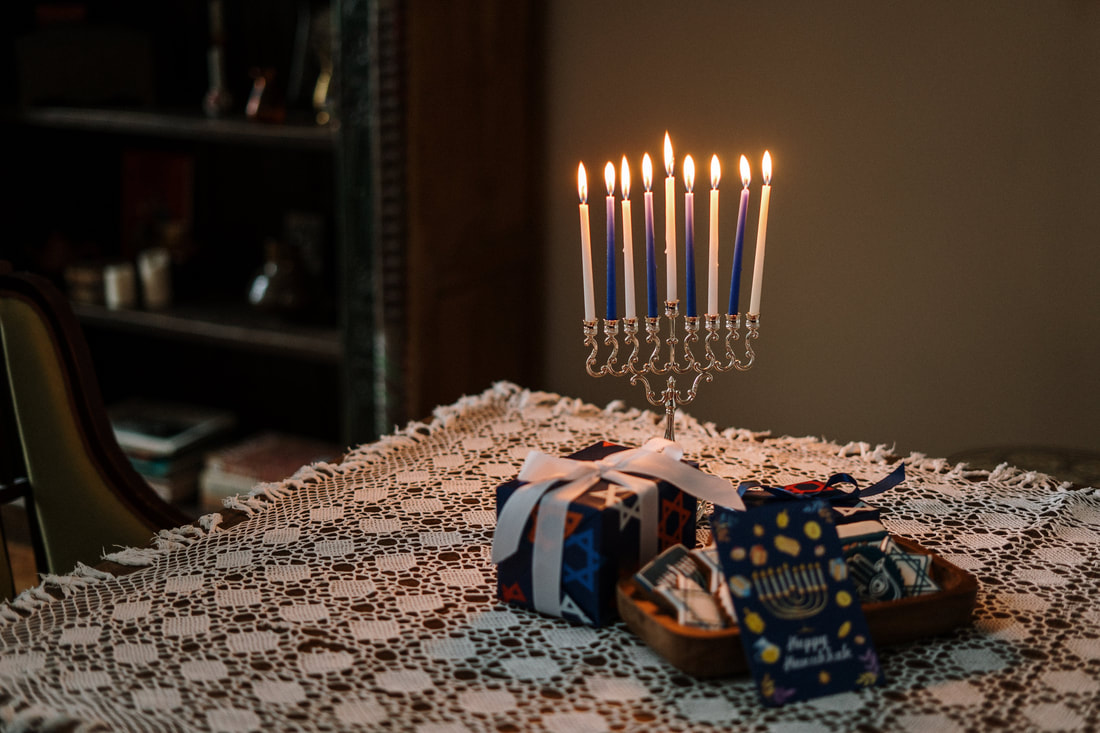


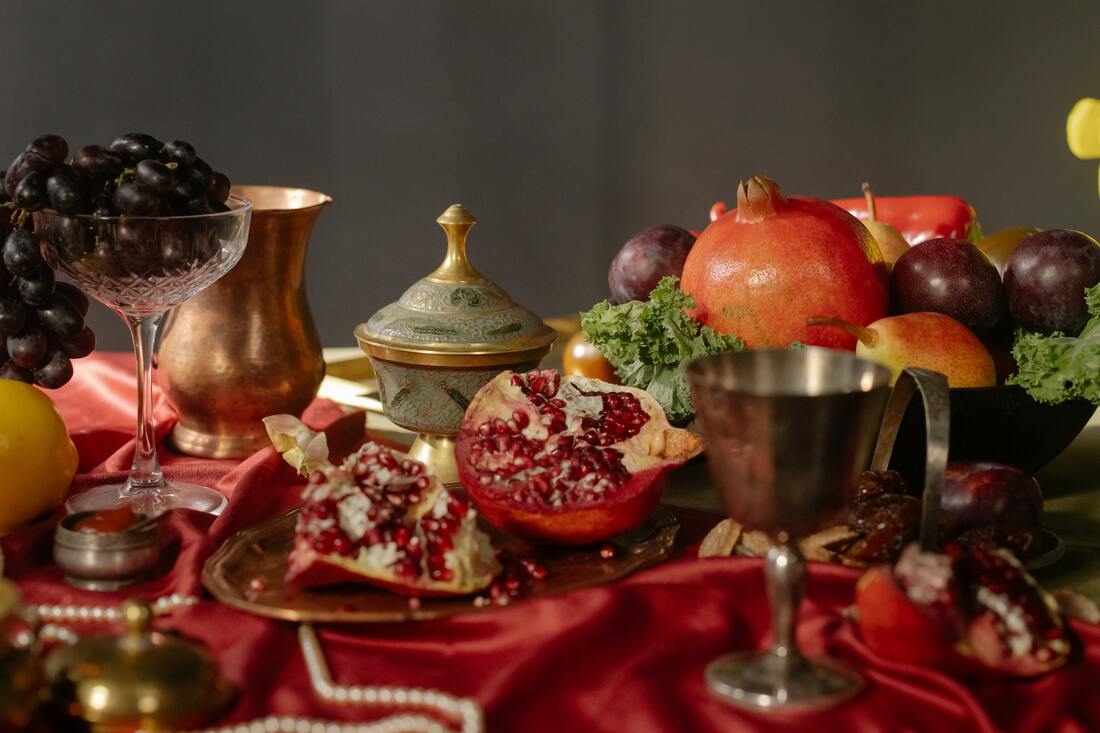
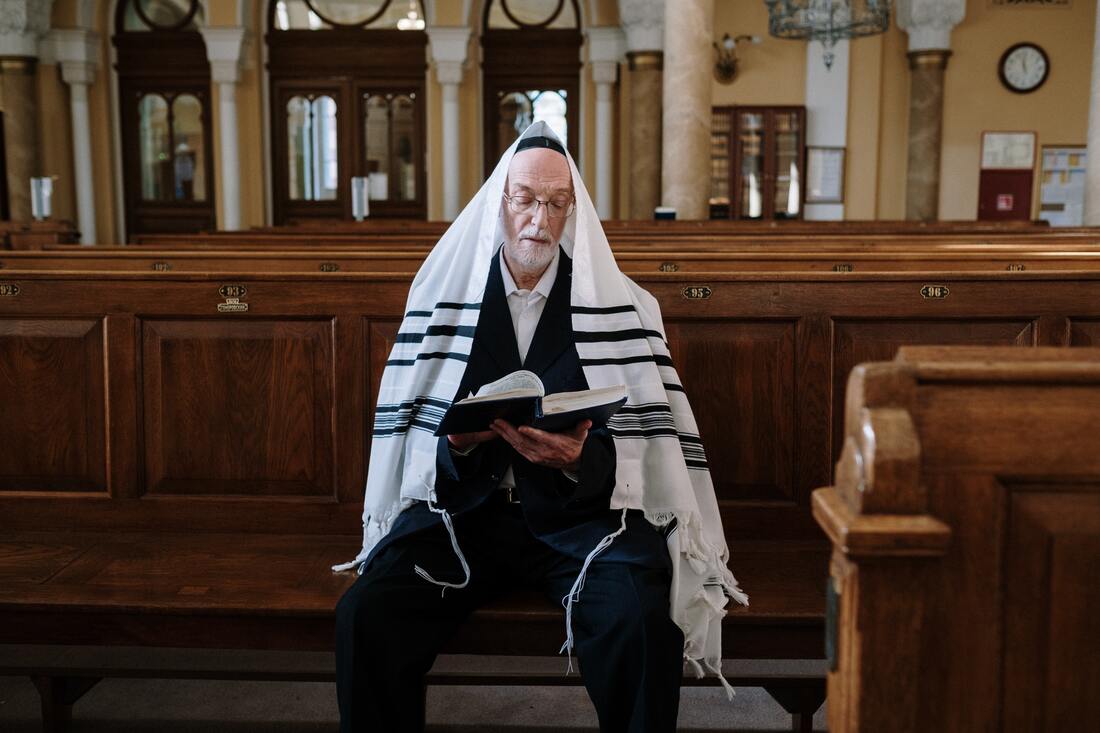
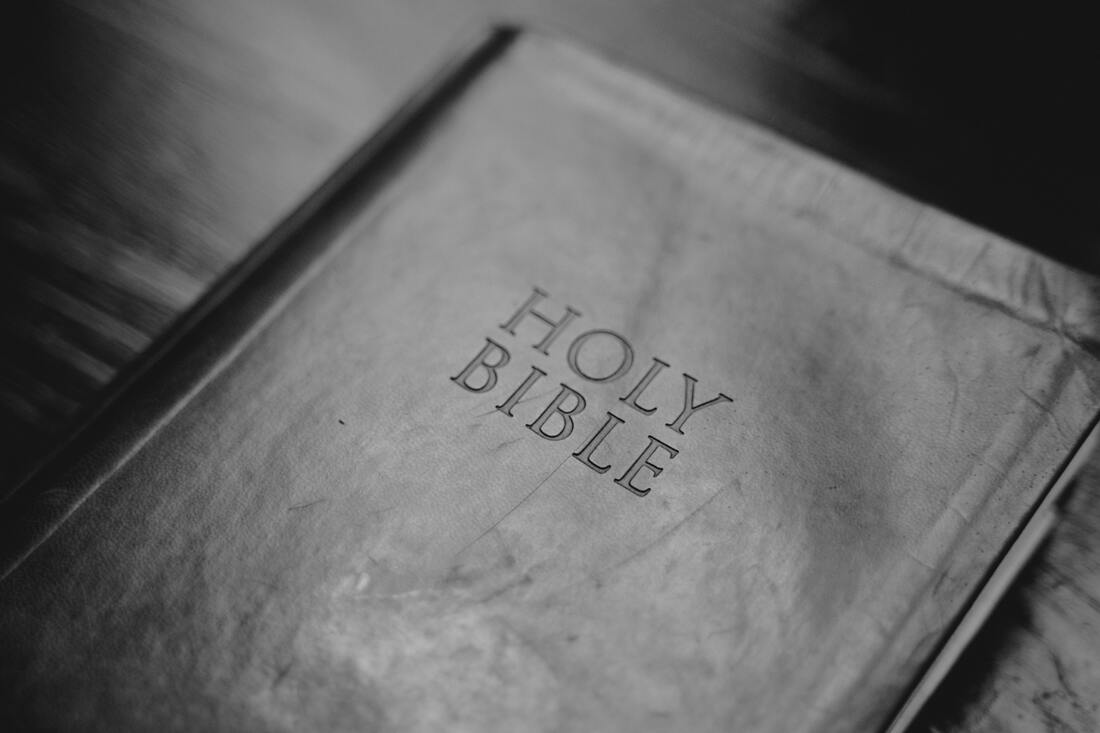



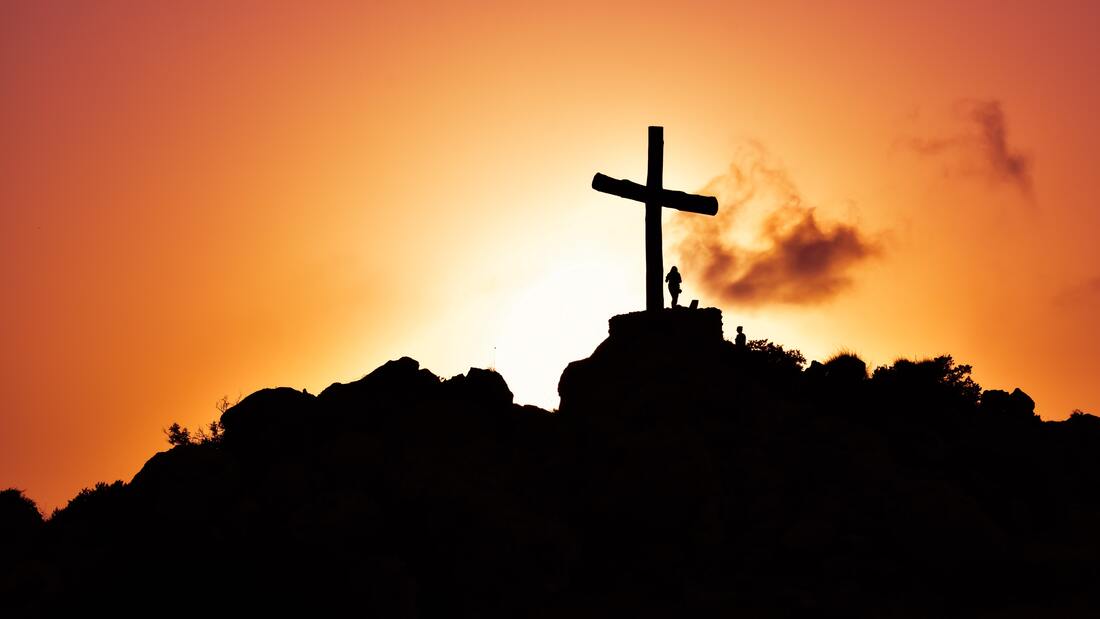
 RSS Feed
RSS Feed